Learn basic keyword research techniques for a search engine optimization website. Google searches use more than 100 criteria for ranking websites. To make your site stand out you need to do thorough keyword research.
Find keyword strategies and create them to attract your target audiences, improving the visibility on search engines and bringing valuable organic traffic to your website.
But, if you don’t have a clear idea of how to conduct keyword research, you may be missing out on valuable opportunities to improve your website’s visibility and attract more relevant traffic.
What is keyword research?
Keyword research is a critical component of search engine optimization (SEO). It is essentially the process of identifying the specific words and phrases people use to search for information about a particular topic. By understanding what keywords are most relevant to your audience, you can create content that is optimized to rank well in search engine results pages (SERPs).
Keyword research involves identifying seed keywords, generating a list of related terms, and evaluating their relevance and search volume. By leveraging keyword research tools and analyzing competitor keywords, you can find long-tail and intent-based keywords that will help you improve your rankings and drive more traffic to your website.
Ultimately, by understanding your audience and their needs, you can create content that is optimized to perform well in search engine results and connect with potential customers.
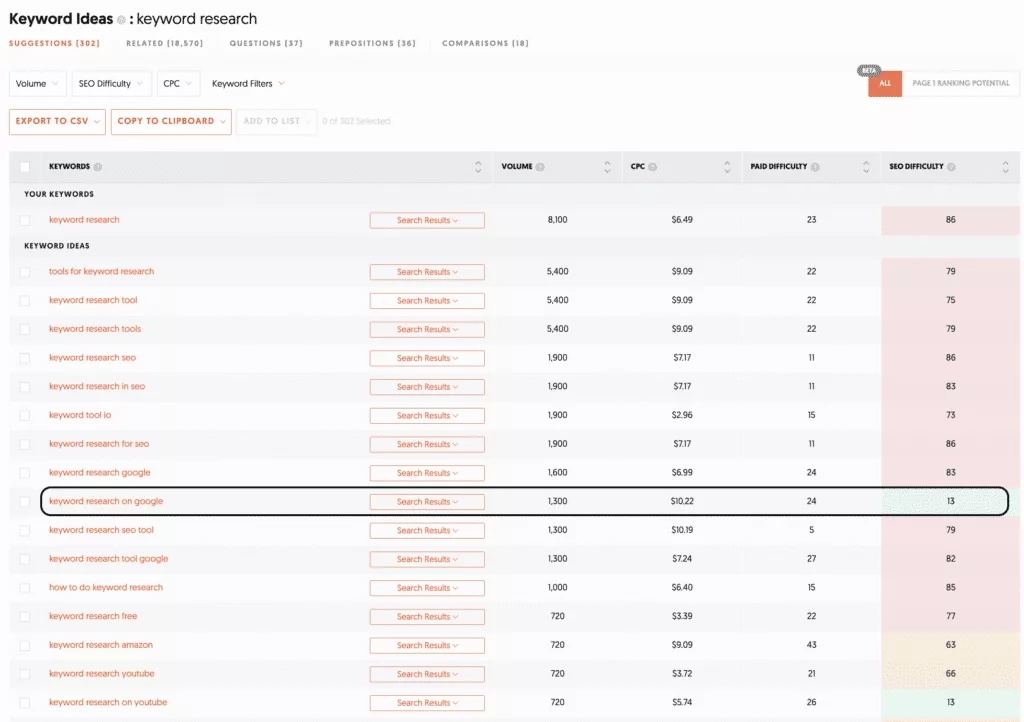
How to find keyword ideas
To conduct effective keyword research for SEO, the first step is to find keyword ideas. There are several ways to do this, including brainstorming relevant topics and query-based searches, analyzing competitors’ keywords, and using keyword research tools.
One of the simplest tips is to jot down a few phrases that best describe your products and services. This creates a seed list, which can be expanded upon with a combination of investigation and brainstorming.
By understanding your audience and their needs, you can generate relevant keyword ideas that they are likely to search for. It’s important to evaluate keyword relevance and search volume to prioritize which ones to target.
Additionally, analyzing keyword competition and finding long-tail keywords can provide opportunities for ranking higher in search results. Focus on intent-based keywords to ensure that your content matches the user’s search intent. A good keyword research process can drive more traffic and help your website rank higher in search engines.
Request Free Review
We start by reviewing your website and then take a look at your current ranking in SERPs.
- Unlock Your Website’s Potential with Our Comprehensive Analysis.
- Outrank Your Competitors with Our Expert Insights and Recommendations.
- Ways for increasing website traffic.
- Get Tailored Recommendations to Achieve Better Results Online.
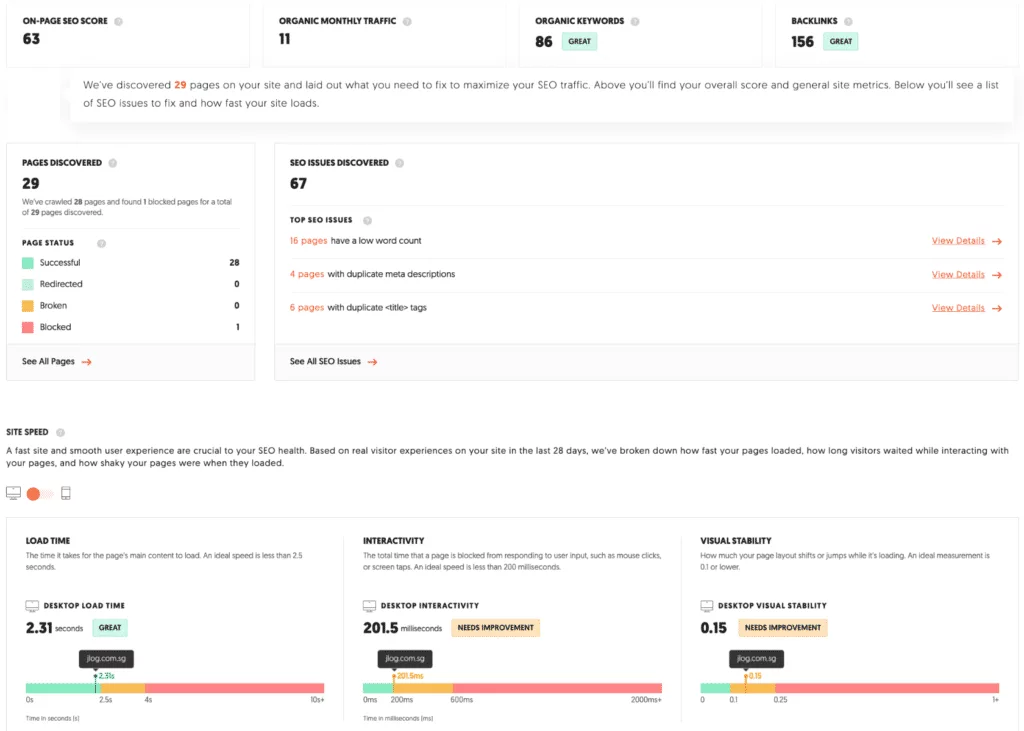
Use Keyword Research tools
When it comes to conducting keyword research for SEO, utilizing the right tools can make all the difference in discovering the best keywords for your content.
Keyword research tools such as Google Keyword Planner, SEMrush, and Ahrefs can provide valuable insights into search volume, competition, and related keywords. These tools allow you to enter seed keywords and generate a list of related keywords to target in your content.
However, finding the right keywords requires more than just relying on these tools. It’s also important to analyze competitors’ keywords, brainstorm relevant topics and queries, and consider the intent behind the search. By utilizing a combination of keyword research tools and strategies, you can uncover the ideal keywords to optimize your content for search engines and attract your target audience.
Analyze Competitors’ Keywords
Analyzing competitors’ keywords is a crucial step in conducting effective keyword research for SEO. By identifying the keywords that your competitors rank highly for, you can gain valuable insights into current marketing trends and adjust your content accordingly.
Using a range of SEO competitor analysis tools, you can discover the keywords that your competitors are targeting and determine which ones are most relevant to your audience. With this knowledge in hand, you can adjust your content marketing strategy to take advantage of these trends and stay ahead of the competition.
By focusing on intent-based keywords and long-tail keywords, you can create content that is highly targeted and more likely to attract the right audience. Ultimately, by analyzing competitors’ keywords, you can improve the effectiveness of your SEO efforts and achieve better results for your business.
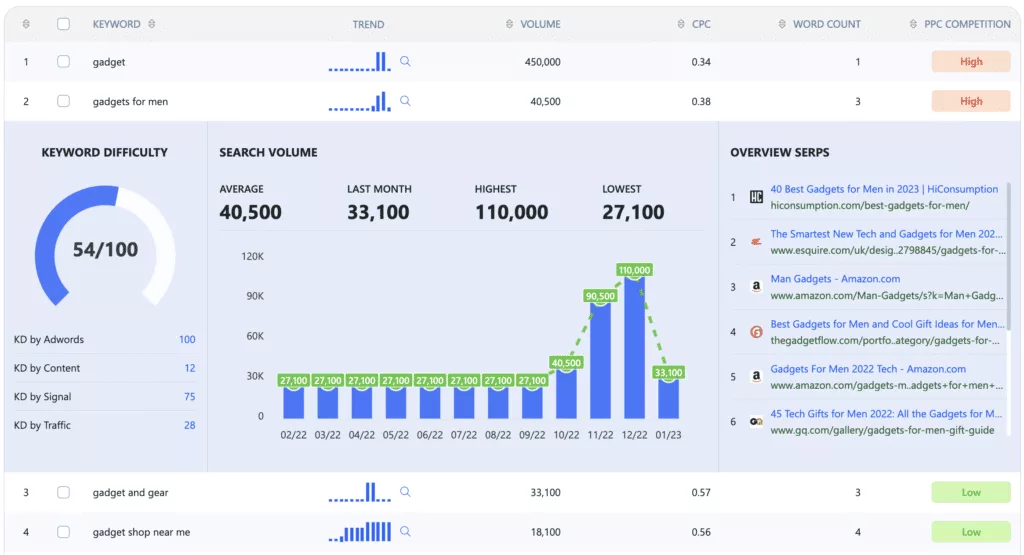
Brainstorm relevant Topics and Query-based searches
In order to conduct effective keyword research for SEO, it’s important to brainstorm relevant topics and query-based searches. This can be done by first using a keyword tool to identify seed keywords, and then expanding upon those by brainstorming related topics and queries that your audience is likely searching for.
Analyzing competitors’ keywords can also give you ideas for relevant topics to explore. It’s important to focus on intent-based keywords, as these are the search terms that are most likely to lead to conversion.
By understanding your audience and their needs, you can better tailor your keyword research to target the most effective and relevant search terms that will drive traffic to your website.
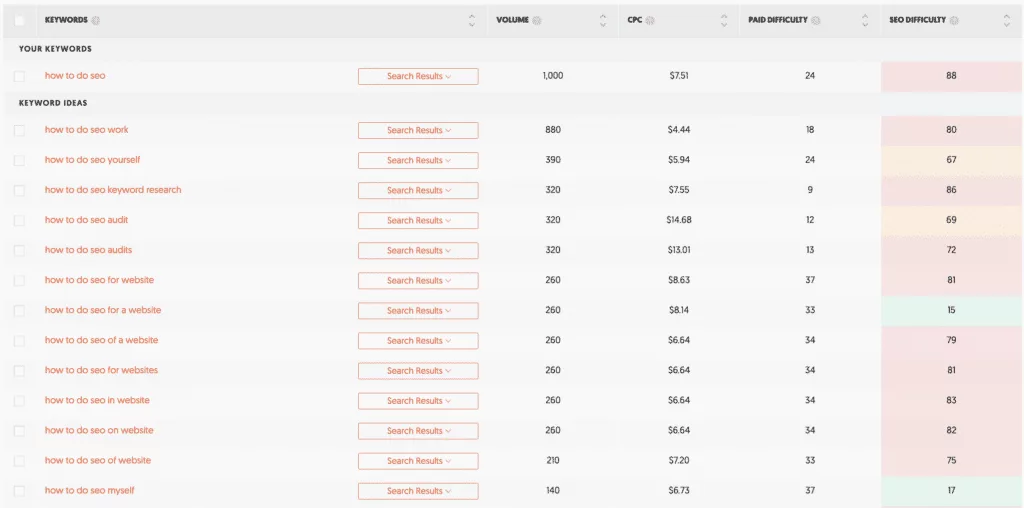
How to do keyword research
To conduct keyword research effectively, one needs to follow certain steps. After identifying seed keywords, it’s essential to evaluate their relevance and search volume.
Next, one needs to consider the audience and their needs, and evaluate the intent behind their searches. This analysis helps identify intent-based keywords. Analyzing keyword competition then helps hone in on keywords with the best potential for ranking.
It’s also essential to find long-tail keywords that have lower competition and are more specific to the content. Using keyword research tools allows one to discover thousands of keyword ideas, while surveying the SERP landscape for the target keyword provides a better understanding of searcher intent.
Lastly, analyzing competitors’ keywords provides insights into what works in the industry and where the competition lies. Following these steps ensures a comprehensive and informed approach to keyword research.
Evaluate keyword relevance and search volume
When conducting keyword research for SEO, it’s essential to evaluate keyword relevance and search volume. This involves understanding how often people search for specific keywords and whether they’re relevant to your content and audience.
Using keyword research tools can help you discover average monthly search volume and related keywords. Analyzing competitors’ keywords can also give you an idea of what keywords are worthwhile to target.
Brainstorming relevant topics and query-based searches can provide additional insight into what your audience is searching for. By evaluating keyword relevance and search volume, you can ensure that your content is optimized for the most valuable and relevant keywords to improve your search engine rankings.
Understand your audience and their needs
Understanding your audience and their needs is a crucial step in effective keyword research for SEO. This involves identifying your target audience and understanding their demographics, interests, and preferences. By doing so, you can tailor your content to their needs and focus on the keywords that they are searching for.
In order to understand your audience, you can use demographic data tools and social media analytics to gain insights into their interests and preferences. Once you have a clear understanding of your audience, you can begin to identify seed keywords and analyze keyword competition.
This data can help you to prioritize the keywords that are most relevant to your audience and create content that resonates with them. By understanding your audience’s needs and tailoring your keyword research accordingly, you can improve your chances of ranking high on search engine results pages (SERPs) and generating more traffic to your website.
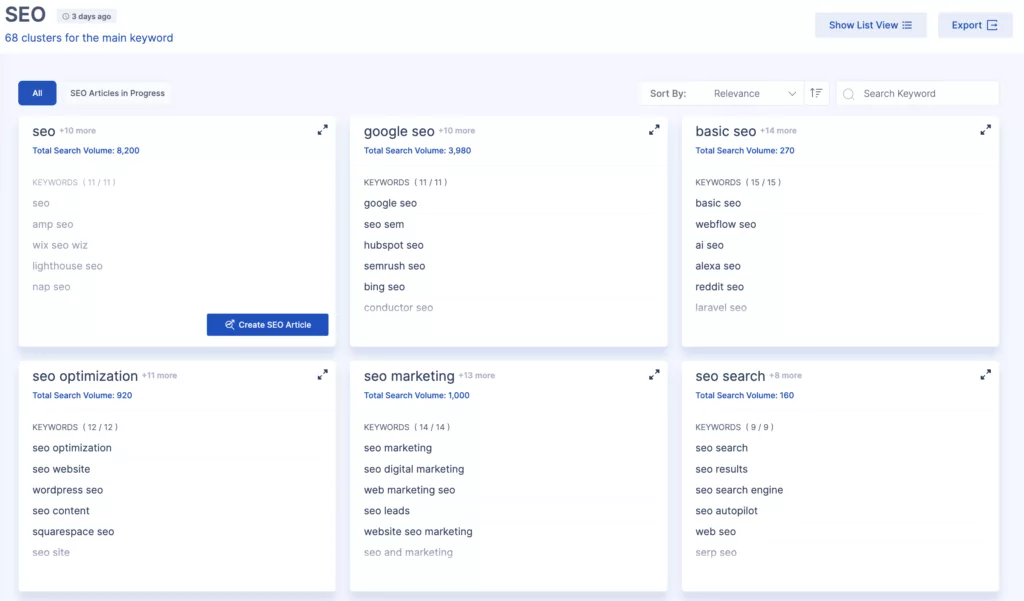
Identify seed keywords
Identifying seed keywords is a crucial step in conducting keyword research for SEO. As mentioned earlier, seed keywords are the starting point for your research process, and they define your niche and help you identify your competitors. Brainstorming ideas for seed keywords can be as simple as jotting down a few phrases that best describe your products and services.
However, it is essential to evaluate keyword relevance and search volume while identifying seed keywords. Avoid using highly competitive keywords as they may not yield the desired results. Instead, focus on long-tail and intent-based keywords.
Through keyword research, one can find optimal keywords in demand while still being niche, which helps businesses provide what consumers want, ultimately boosting their online visibility and attracting relevant traffic to their websites.
Overall, identifying relevant and non-competitive seed keywords is crucial for a successful SEO strategy.
Analyze keyword competition
After identifying relevant keywords, the next step is to analyze keyword competition. A critical aspect of SEO keyword research is knowing the level of competition you will face when targeting a specific keyword. Analyzing keyword competition helps determine how difficult it will be to rank for a particular keyword.
One way to analyze keyword competition is to use keyword research tools to determine the search volume and level of competition on search engines. It is also essential to study your competitors’ ranking pages and the content they have published for specific keywords.
By understanding the competition, you can then make strategic decisions about which keywords to include in your content and which ones to avoid. Overall, analyzing keyword competition is crucial for any successful SEO keyword research process.
Find long-tail keywords
To improve the effectiveness of keyword research for SEO, it is important to find long-tail keywords. These are more specific and serve searcher intent, which leads to higher conversion rates. Tools like Google Autosuggest and the “Searches related to…” section can help identify these keywords.
Starting with a seed keyword and analyzing competitor’s keywords can also provide insight into long-tail keywords. It is crucial to evaluate relevance and search volume of these keywords to ensure they align with the audience’s needs.
Overall, finding long-tail keywords is an essential step in successful keyword research for SEO.
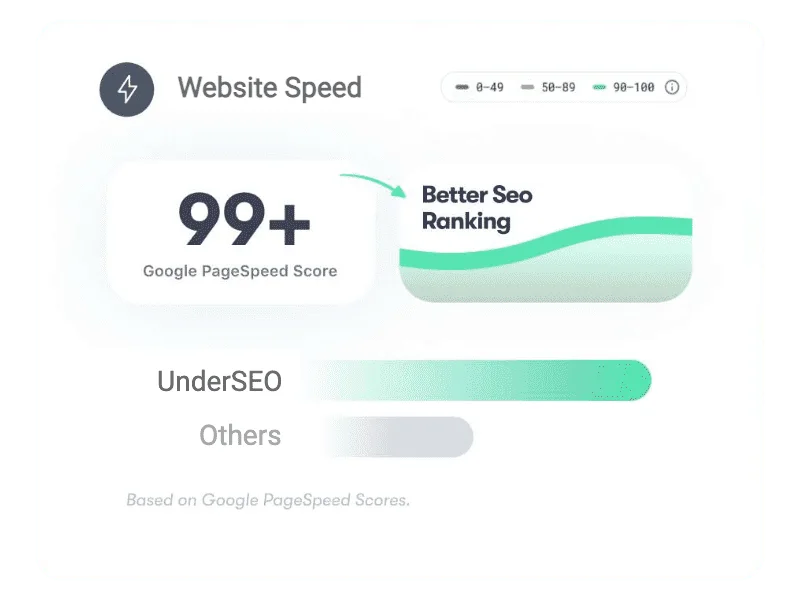
Need Some Help?
How to Conduct Keyword Research for SEO
Focus on intent-based keywords
After identifying seed keywords and analyzing keyword competition, the next step in keyword research is to focus on intent-based keywords. Intent-based keywords are those that reflect the intentions and motivations behind a searcher’s query.
Understanding the intent behind a search query can help you create content that is more relevant and useful to your audience. One way to determine intent is to examine the types of content that rank for the keyword. Are they blog posts, product pages, or instructional videos? This can give you insights into the type of content that your audience is looking for.
Additionally, consider the language that searchers use when entering the keyword into the search engine. Do they use words like “buy” or “review”? This can help you tailor your content to their specific needs and motivations. By focusing on intent-based keywords, you can improve the relevance and effectiveness of your content, driving more quality traffic to your website.



